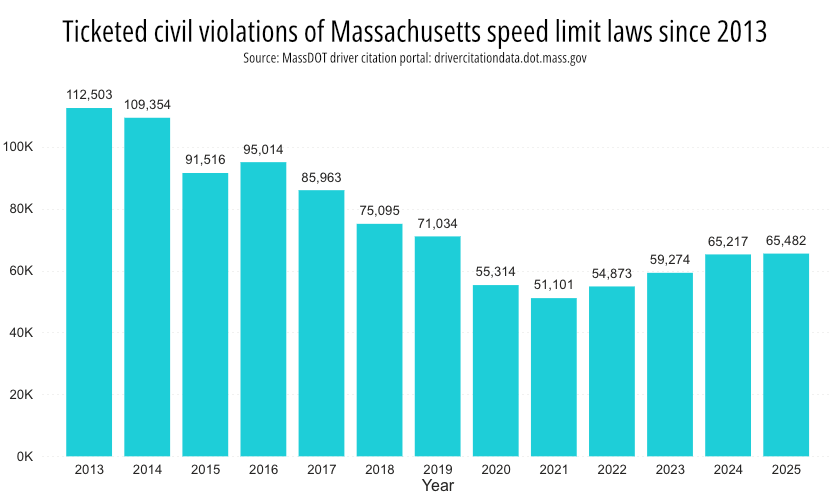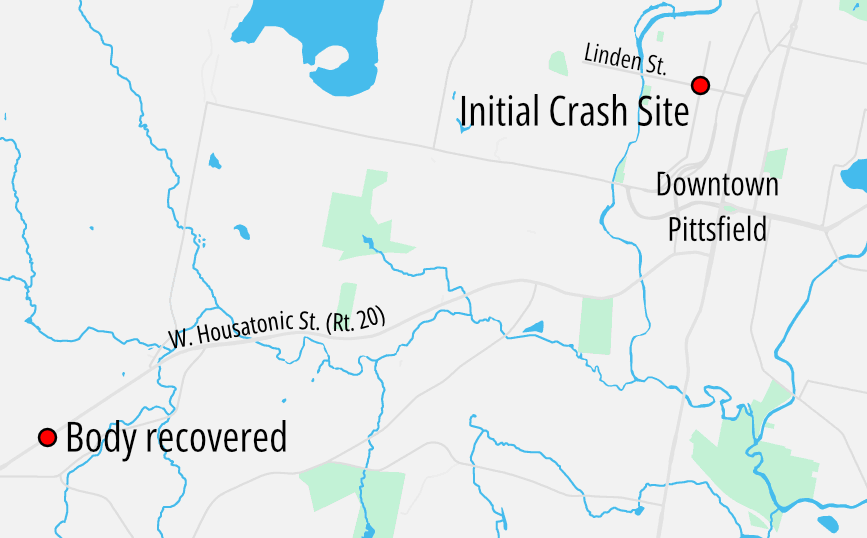
The City of Worcester could become the latest municipality to adopt a 25 mph citywide speed limit after the City Council unanimously voted Tuesday evening to send the policy to the city's Traffic and Parking Committee.
Worcester is one of the few big cities in Massachusetts that still allows 30 mph traffic on local streets, and those higher speeds are likely a factor in the city's high rates of deaths and injuries from crashes.
According to the state's crash database, drivers in Worcester have killed 34 victims and seriously injured another 369 victims since the beginning of 2020.
In the same period, drivers in Boston – a much more crowded city with three times as many residents – killed or seriously injured 270 victims.
"The City is currently launching a Vision Zero Safe Streets program, and appropriately managing vehicle speeds will be a critical aspect of this effort... we are recommending adoption of a 25 mph citywide statutory speed limit, and also accepting provisions of state law that allow the city to establish 20 mph safety zones at locations where speed management is especially needed," wrote Worcester City Manager Eric Batista in a Dec. 5 memo to the City Council.
Stephen Rolle, the city's Commissioner of Transportation and Mobility, cited the city's unusually high rate of violent crashes to support the recommendation at Tuesday night's city council meeting.
“A simple reduction in the speed limit can have profound effects on traffic safety,” Rolle told city councilors.
Rolle went on to cite research that if a driver hits a pedestrian at 40 mph, the victim has only a 10 percent chance of surviving.
“If you are instead hit at 30 mph, your chances (of surviving) increase to 50 percent; at 20 mph, 90 percent,” said Rolle.
Though the vote to refer the proposal to the Council's Traffic and Parking Committee was unanimous, several councilors did express skepticism.
“I support committee discussion, but I’ve got many reservations about it,” said Councilor George J. Russell, who also asked whether Worcester Police would be able to enforce the new speed limit.
“The idea is not to ramp up enforcement," answered Eric Batista, the city manager. "Psychologically, what it does is start to change behavior."
Research from Boston, which implemented a citywide speed limit reduction from 30 to 25 at start of 2017, offers strong evidence that simply changing speed limit signs can improve safety, even in the absence of physical changes to city streets.
After Boston changed its speed limit signs, researchers observed a 29 percent reduction in the number of drivers traveling faster than 35 mph – the riskiest driving behavior for injury-causing crashes.





